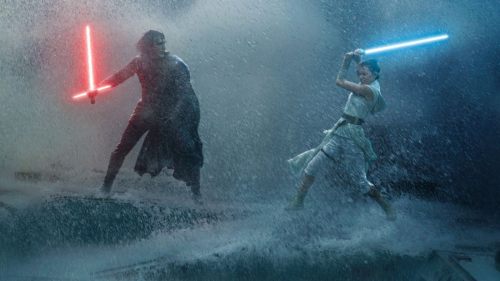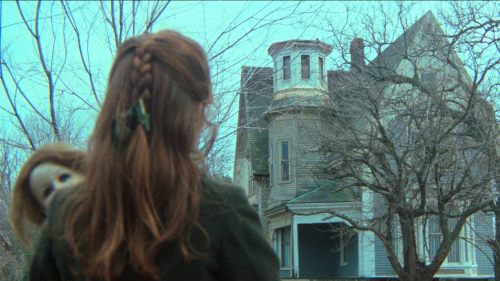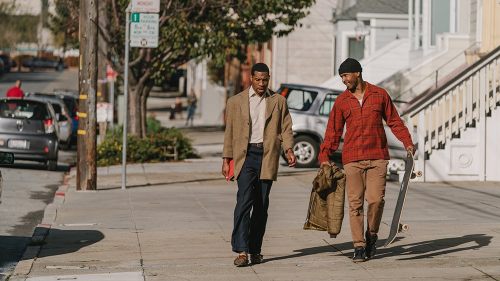Film Composers Create Something New From Something Old
If there’s one thing cinema connoisseurs can often struggle to appreciate, it's when an artist has an unquenchable desire to retread the past and tinker with their older works (yes, I’m looking at you, George Lucas). Most of the time we don’t even notice it as films have been subtly improved upon over the years by filmmakers to little or no fanfare. Others are maligned entirely for completely “destroying” a cherished cinematic treat. While this may create a dividing hardship between the artist and their patrons, there are instances when this phenomenon should be wholly embraced.
Thirty-five years after the release of the Lucio Fulci classic The Beyond (1981), composer extraordinaire Fabio Frizzi released what he’s calling his “composer’s cut” of the film. Cinephiles are fairly accustomed to surveying various cuts and edits of a particular film produced by various members of the filmmaking ensemble; however, nobody has quite experienced a redefined version of a film based on the unique perspective of the composer. In 2016, Frizzi went back through his archives and discovered a cornucopia of unreleased tracks, unused cues, rough drafts, and a hodgepodge of material that had remained unheard outside of the filmmaking team. He cobbled the material together and formed what he dubbed his “composer’s cut” of the film.
When a composer works on a movie, it’s very likely that there is a ton of material that doesn’t end up making it into the picture. The first draft of any cue always has a tinge of “throwing a dart at the board” because no matter how many conversations you have with a director, you’re never completely sure they’ll mesh with your ideas until they hear it for the first time. Then there’s always the inevitable shock when a director hears your music attached to their picture. Even though it may be exactly what they asked for, it’s still going to be a perplexing experience for them to add such a mammoth change to something they’ve lived with for months, perhaps even years.
When the melding of these two creative forces come together, it often produces a residue of unused material that audiences are unlikely to ever hear. Sometimes this is unfortunate. Losing entire pieces of music is not the same thing as an innocuous scene getting left on the cutting room floor. Deleted scenes are common on most special feature menus; however, other than getting a glimpse into the creative process and evaluating the aesthetic “what ifs” they present, they’re usually nothing more of a footnote.
A piece of music, however, can still be enjoyed! If it’s a completely mixed track it can be listened to over and over again alongside other pieces that actually made it into the film (and sometimes unused cues do make it on to their respective soundtracks). It is also important to note how much of this material potentially exists. It’s not uncommon for a composer to have written just as much unused music as used. I know from personal experience that there have been some films I’ve scored where I feel like I probably composed music for the same movie three times over. It’s part of the job and the creative process when you’re working within the framework of another artist’s vision.
For Frizzi to go back and unearth this material, evaluate its potential, and cobble together his own unique vision of the film (no small feat to be certain), is a gift to the cinematic community. Frizzi released fifty-two unused pieces of music and they're absolutely delicious! It doesn’t taint the original film to gain insight into this unique perspective. It’s a companion version of the movie that ultimately is neither better nor worse than the original, but expands what the movie truly is…a work of art. If you admire The Beyond, you’re bound to love it even more after listening to Frizzi’s treasure trove of unreleased music reunited with the scenes that inspired its inception.
In an interview published in the 2019 horror soundtrack book Blood On Black Wax: Horror Soundtracks on Vinyl, Frizzi explained the process of building this new cut:
"The definitive mix of a movie is a difficult matter in which (everyone's) ideas flow and where the director has to create the right balance under his artistic view. For the new composer's cut, I found my old notes taken with Lucio and many of the scenes that I newly scored contain the original, unused music cues...It is basically a new reading of that movie. I tried to do the work imgaining Lucio sitting beside me. The true Beyond is always the one dated 1981, but I hope this new one will be a pleasant experince for all of those who loved that one."
On September 19, 2019, Cadabra Records is releasing Frizzi’s legendary “composer’s cut” score on a deluxe double-LP pressed on 160-gram vinyl. The album will feature the complete uncut score, including fifty-two unused music tracks originally composed for the film by Fabio Frizzi, liner notes penned by the maestro himself, a 4-panel foldout insert, and 11” x 11” insert, and a 24” x 36” promotional poster.
You can listen to an exclusive track streamed here and be sure to visit the Cadabra Records web site for more information. This is an absolute must-have for any fan of Frizzi’s unique musical voice. Nobody scores horror films quite like Fabio Frizzi, and it’s likely nobody ever will again.
Another composer who has taken a creative trip down memory lane is Joseph LoDuca. Known for penning screamingly scary scores for The Evil Dead (1981) and Evil Dead 2 (1987), LoDuca frequently entertained thoughts of revisiting the original film score which set his career in motion. For decades he heard the pleas and cries of fans and record labels who wanted the original score released (one of my earliest interactions with him was of this very nature) and the answer was always the same. When a gaggle of twenty-something-year-olds convenes to make a movie with no money and no real experience and then that movie goes on to be colossal success, steps aren’t always made to ensure that a soundtrack release will ever be possible. A confusing soup of issues existed that prohibited a meaningful release of the score.
Thirty-seven years later, Joseph revisited his career-catalyzing film score and fulfilled a decades-long dream of making this music worthy of release. It started with LoDuca playing around with ideas away from picture much like a classical composer would pen a “theme and variations” movement for a sonata. LoDuca concocted new music and infused it with original material for the sake of pure nostalgia. The result is an amalgam of material thirty-seven years in the making entitled The Evil Dead: A Nightmare Reimagined released by Death Waltz Recording Co. (DW-112) in 2018 as a double-LP 180 on Kandarian Demon vinyl (green, yellow, and purple swirl with red splatter).
From the Mondo website, LoDuca had this to say on the newly recorded and expanded score:
"The Evil Dead was my first film commission. As fate would have it, this is the movie that has the most enduring impact on generations of fans. So when I was last approached to re-issue the score, I asked myself this question: Knowing what I now know, how would I write for that ensemble today? I am happy that I did. Welcome to my nightmare: re-imagined.”
This Saturday night at MondoCon 2019, Joseph LoDuca will be in Austin, Texas, to conduct a live ensemble performing thirty minutes of his reimagined music prior to a screening of the film which includes his newly revamped score. A new MondoCon exclusive variant of the LP (Book of the Dead Edition) will also be available which includes a super-cool Book of the Dead slipcover. LoDuca will be available at 4PM on Saturday at the Palmer Events Center to sign albums and converse with MondoCon attendees.
For more information visit the Mondo Records and MondoCon web sites.
The mind of an artist never dies. The art is never finished. Both of these scores are superlative examples of true artists expanding on lost ideas, creating new ones to reflect the artists they are today. All art is organic and the fact that these albums exist is a testimony to film music as a truly appreciated art form.



